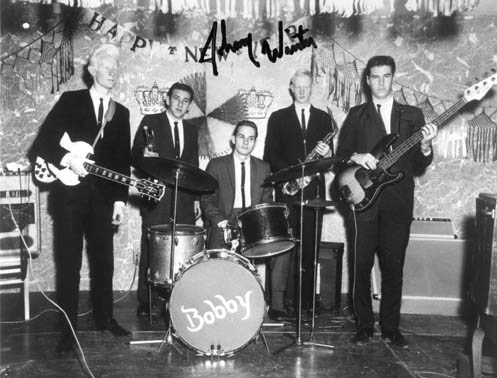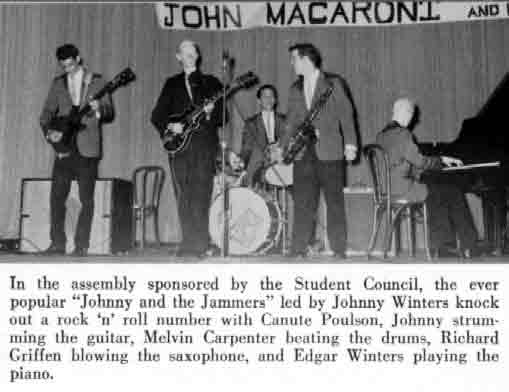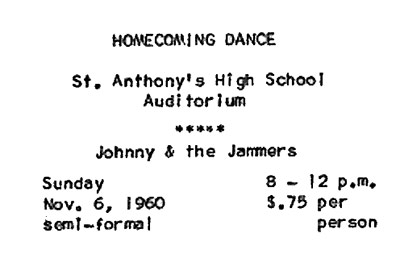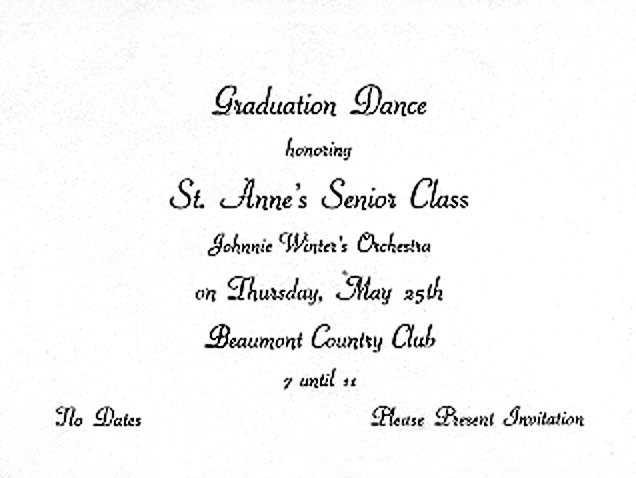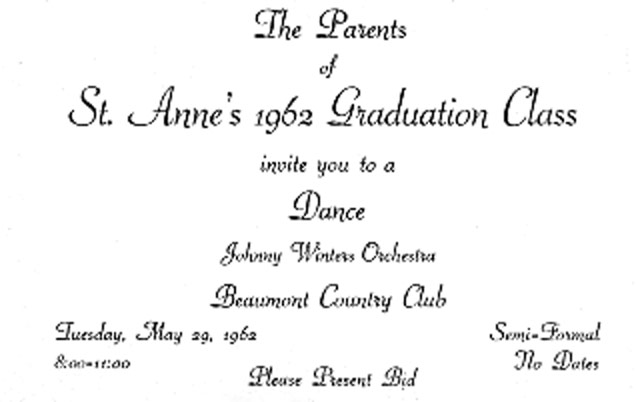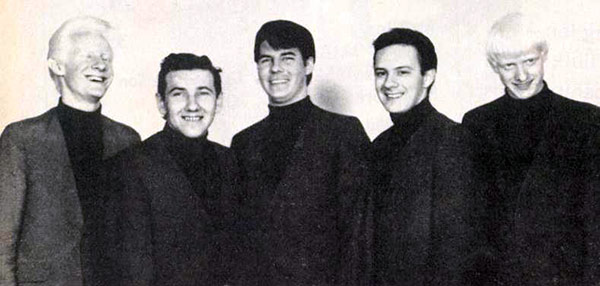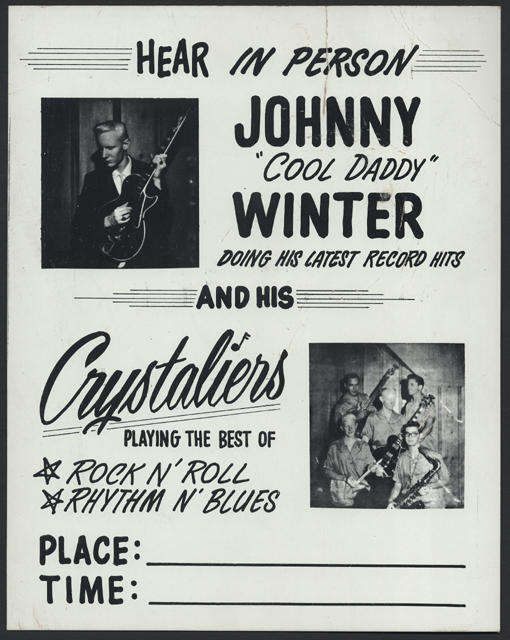Synopsis: In this article, Steve Parkinson, also known as Steve Highfield, recounts his musical journey, particularly focusing on his collaboration with Johnny and Edgar Winter. Highfield recorded several songs with the Winter brothers, including "Avoid Me" and "I’ve Gotta Cry" in Beaumont, Texas. Johnny Winter, already a seasoned musician, contributed to the arrangements of these tracks. Later in 1964, they recorded "Scandal" and
"Stay By My Side,"
the latter featuring all three—Steve, Johnny, and Edgar—singing in trio style. Highfield’s experiences with the Winter brothers, despite some challenges in the music business, remain a notable part of his musical career.
Full Article:
Steve recorded "Avoid Me" and "I Gotta Cry" under the name Steve Highfield. He also recorded with Johnny and Edgar Winter; their music played on the jukebox in 1964 at Garner Park.
In 1958, rising star Kenny Rogers did a guest appearance at our school, Smiley High School in Houston. The kids went wild over him—screaming, applauding—I was impressed. He performed "That Crazy Feeling" (Carlton Records), having just finished a guest spot on American Bandstand with Dick Clark. Since I'd taken piano lessons and knew something about chords and sheet music, I began to write "doo-wop" songs. They were stupid creations—but what did you expect from a dumb 14-year-old, poor kid from the wrong side of the tracks?
A few weeks later, I was in downtown Houston, in Parker Music Store, and who should I see? Kenny Rogers! I struck up a conversation with him, as he was friendly and approachable. In those days, everyone was listed in the phone directory. Needless to say, the imposing little jerk I was, I wasted no time looking up his phone number. He was always willing to chat, and I began playing song after song I'd written over the phone to Rogers to see what he thought. He'd critique them, and I would refine them. I began to pester him so much that he finally, politely, requested that I stop calling him so much.
I performed in school talent shows and began to slip backstage at major rock and roll concerts. I met up with Fabian, Frankie Avalon, Freddy Cannon, Duane Eddy, Annette Funicello, Brenda Lee, Jimmy Clanton, and Johnny Maestro & the Crests ("16 Candles"). I tried to pester them, had my picture taken with them, but their road managers usually succeeded in keeping me at bay. On one such occasion, I was backstage at a concert in 1961 and met this loud-mouthed, obnoxious, rude individual named Charlie Booth. We clashed right away. However, it was a love/hate relationship. He had me audition for his label in an empty dressing room at the Sam Houston Coliseum. He was impressed. Soon afterwards, he had me performing with various bands, recording demos, and traveling around local spots for one-night "gigs" with various "garage-type bands." My parents despised him. Charlie ran me to death, to the extent that I finally broke up my business relationship with him. At the same time, Booth had his hands full with his own local hit, "Fishin' Fits" (Lori Records—label named after his wife, Lori).
Later that year, a fellow musician referred me to a talent scout who was looking to do screen tests on rising performers to submit to record companies. I did the screen test singing my own composition, "A Girl Named Jackie" (a tribute to my girlfriend, Jackie Wright). The tests were being promoted to raise funds for an infamous murder trial defense. A record producer, Roy C. Ames, became interested in my compositions and immediately entered an agreement to publish my songs and assist me with my career. I thought this would boost my career because Ames was managing a Houston DJ who had a local hit called "Certainly I Do," which was getting extensive airplay.
I continued to play in various bands and became quite a booking agent. I could wheel and deal with the best of them. After several years, I felt I was experienced enough to cut my own 45 record. I went to Beaumont to record it, and two albino brothers, Johnny and Edgar (along with their band), contributed to the arrangement of "Avoid Me" and "I've Gotta Cry." Johnny Winter had a long string of records under his belt and had just finished "Eternally" (though not yet released). His manager was
Ken Ritter
, nephew of Tex Ritter and a cousin to TV's John Ritter (sitcom star). Johnny and I became great friends.
In late Spring of '64, I took Johnny Winter's record, "Eternally," to Garner State Park and used up a "jillion" dimes playing it over and over. I made sure there were an ample number of kids present on the pavilion to hear it, and finally, it caught on and became a local hit. A month or so later, my record, "Avoid Me," was put on the Garner jukebox and played repeatedly. The reason it never got the airplay that "Eternally" did back home in Houston was due to my already strained relationship with Charlie Booth turning sour. Charlie initially wanted to produce my music and manage my musical career, but I had made an agreement with Ames, leaving Charlie out of the picture. In all honesty, I believe the real reason things fell apart was because I wasn't really an outstanding talent in the first place.
In November of 1964, I returned to the studio with the Winter brothers and recorded "Scandal" and "Stay By My Side."
"Stay By My Side"
featured me, Johnny, and Edgar singing trio style. I still have the master reel from the session. I released the record on my own label,
Parsim
. A copy was given to an angry Roy Ames, who later pirated it onto other LPs he released without Johnny's permission, nor mine—but that's the music business. After a long cooling-off period, I decided not to pursue the issue in court; who wants to see yesterday's vomit?
In retrospect, I'm not angry at anyone. By late 1965, I realized that this was a waste of time. Even today, I deeply regret the time I wasted trying to become an accomplished recording star. My time would have been better spent if I'd been more conservative, stayed home, worked, saved my money, and pursued college at a much younger age (instead, Bachelor's at 37; Master's at 54).
